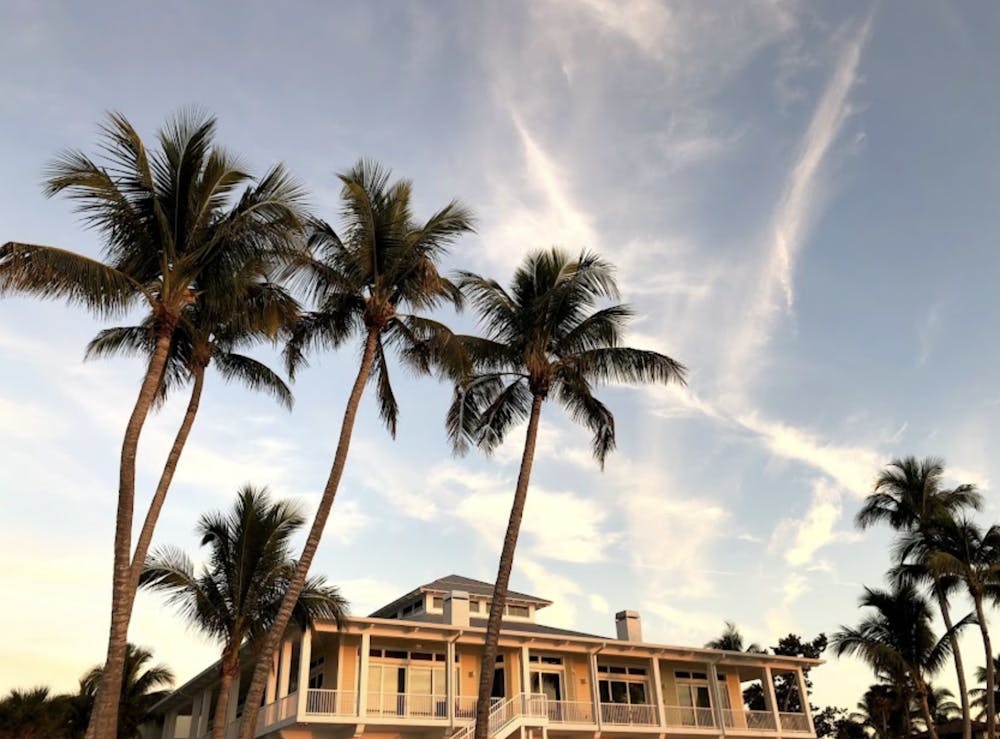It started with the white paint.
Like dying coral, the Mediterranean hues that decorated the main drag were bleached into a single tone. Bright, pastel Key West-type homes were torn down and replaced with a milky, transitional-style construction. The orange coat of the vintage trolley was painted over.
The white paint became a glaring evidence of something amiss.
In reality, the white paint was just a striking visualization of Naples’ unfolding evolution.
My childhood has been filled with little signs: single-story homes have slowly made way for multi-story mansions. Swaths of swamp land have been drained to make way for condominium developments. Luxury restaurants (with luxury prices) dominate the food scene. Local businesses have been bought out by a big-time Chicago developer.
And this process has only magnified since the pandemic began.
With its tropical weather that allows for year-round outdoor activities and low taxes, Naples became a safe haven for those seeking to escape stringent pandemic restrictions with enough resources to move or purchase a second home. This has caused a housing boom, skyrocketing property and cost-of-living prices, driving many locals out of their neighborhoods, pushing them further and further from downtown.
I left Naples for Notre Dame nearly three years ago. Like many college students, I had to say goodbye to my hometown and move to a new place. With the distance — and South Bend’s horrible winters — the image of Naples persists in my memory like a 1950s-style postcard: a sunset over the beach framed with palm fronds, orange slices and a smiling sun that shoots rays of light.
As snow falls outside the window of my classroom, I daydream of the radiating heat of white sand beneath my feet and the sound of four o’clock rain showers upon my tin roof. Home is always in the back of my mind.
Last Fall, when Hurricane Ian hit Naples, I sat distracted in class, scrolling through images and videos of cars and boats floating through city streets, houses and businesses being decimated and causeways collapsing. Even though I was separated from the horror by over a thousand and living in a better situation, I felt a weird desire to be back at home, hurricane and all. I felt detached from a collective experience that I did not participate in but would witness the effects of.
Despite my constant longing and nostalgia for home, every time I return to Naples, it never feels fully right.
There are natural reasons. I have grown up and changed. I am no longer the little girl living with her family. My family has gotten older and developed in their own way while I’ve been at school. My friends have gone off and done their own things. I don’t have the built in community of school and extracurriculars anymore.
Alongside the natural changes, there is the inarguable fact that Naples is no longer the city that I grew up in.
The Gulf, which is central to many of my memories, from birthday parties to boat days, is often unswimmable from red tide. The beaches get littered with asphyxiated fish.
My neighbors and friends have scattered due to housing prices and hurricane damage. Local government has become overrun by conspiracy theories. Streets back up for miles with seasonal traffic. Rising sea level and heightened natural disasters loom over the future.
I will always love Naples and it will always be my home. But I have to come to terms with the fact that whether through natural progression or Naples’ transformation, I will never go home to the place I once knew.
Kat Regala is a junior studying the Program of Liberal Studies with minors in Computing and Digital Technology and Science, Technology and Values. She originally hails from Naples, Florida, but loves traveling. When not reading or writing, you can find her drinking coffee, practicing yoga or binge-watching reality television.










